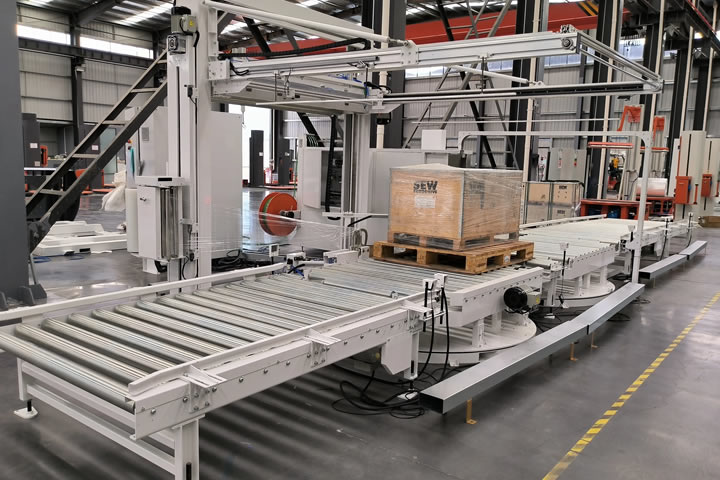When the sales of 5L large barrel shower gel of an international daily chemical brand surged, its traditional packaging workshop fell into a dilemma - the original equipment was not compatible with large-sized containers, and the production line conversion required a 7-day shutdown for transformation, with an average daily loss of more than 2 million yuan. This dilemma was eventually solved by the modular transformation solution of the intelligent packaging production line provided by the ply-pack packaging machine factory, which also provided an innovative model for industry transformation.

The core pain point of the company is the frequent switching of packaging specifications. Traditional equipment adopts a fixed structure, and each adjustment requires disassembly of the conveyor belt, replacement of the mold and recalibration, which takes up to 120 hours. After the ply-pack technical team moved in, they first reconstructed the chassis of the intelligent packaging production line, adopted a honeycomb base design, and added 64 sets of quick-change interfaces to the original equipment. This transformation enables the filling module, sealing device and labeling unit to be replaced by "hot plug", and the operator can complete the production line switch from 300ml bottle to 5L barrel in just 2 hours. Workshop director Li Gong recalled: "The most shocking thing was that during the first test, the robot arm automatically identified the new mold parameters, and even the air pressure value was adjusted adaptively."
The key breakthrough of the transformation lies in the integration of the dynamic detection system. In response to the leakage problem that is prone to occur in large-capacity packaging, ply-pack implanted an infrared spectrometer in the intelligent packaging production line. When the shower gel is filled to 4.8L, the sensor will scan the liquid residue within 3mm of the bottle mouth and adjust the lifting angle of the injection nozzle in real time. This innovation reduces the leakage rate from 1.2% to 0.03%, reducing the waste of raw materials by about 80 tons per year. What is more noteworthy is that the acoustic resonance technology introduced in the quality inspection link can judge the sealing integrity by the vibration frequency of the packaging bottle, and the detection speed reaches 200 bottles per minute, which is 40 times more efficient than manual sampling.
The modular transformation not only brings a leap in efficiency, but also reshapes the supply chain response model. The packaging machine factory pre-places 52 core components in the customer's factory warehouse and realizes automatic replenishment through the Internet of Things system. When the vibration motor of the smart packaging production line runs for 950 hours, the system will automatically send a bearing replacement order to the supplier to ensure zero waiting for equipment maintenance. This deep collaboration has increased the comprehensive utilization rate of the daily chemical enterprise's equipment from 68% to 91%, and the average monthly production capacity has exceeded 4.5 million pieces.
Industry observers pointed out that this case reveals a feasible path for the transformation of traditional manufacturing. Through the flexible transformation of the smart packaging production line, the company has not only retained the value of the original equipment, but also gained the agility to respond to market changes. At present, this model has been replicated in the food, electronics and other industries, and even cosmetics companies have learned from experience and developed modular packaging equipment that is compatible with 32 lipstick colors.
As environmental protection regulations become stricter, a new round of upgrades is brewing. The ply-pack packaging machine factory revealed that it is developing bio-based material packaging modules for the above-mentioned daily chemical customers. In the future, the smart packaging production line will realize the integrated operation of hot pressing and filling of degradable bottles. This transformation, which started with equipment transformation, is quietly pushing the entire daily chemical industry towards green intelligent manufacturing.

